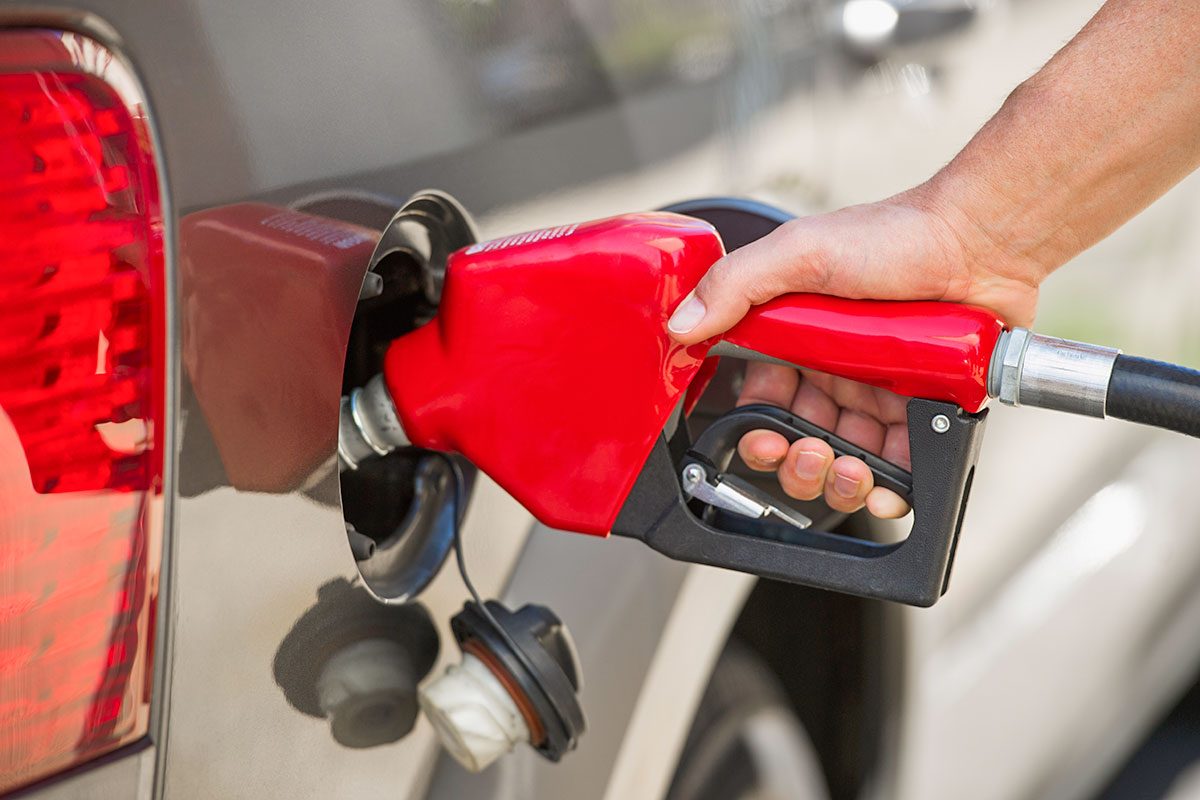We tapped an expert so you don't have to–you can 'tank' us later.

Why New Jersey Drivers Still Can’t Pump Their Own Gas

If you’ve found yourself asking, “Why can’t I pump my own gas in New Jersey?” you’ve landed in the right page. People in every other state can pump their gas, so it might seem odd that the laws for this state drastically differ. Whether you’re visiting this Eastern state or live there and are curious about the reasoning for this law’s existence, we have the answer to this burning question.
Ahead, we delve into detail about the objectives of this law and what it means for you when filling up the gas tank of your car, motorcycle, truck, van, or any other vehicle requiring you to visit a New Jersey gas station. Plus, a representative from the New Jersey Gasoline, C-Store, Automotive Association provides insights on the cost of gas in New Jersey and whether or not you should tip your New Jersey gas attendants.
Why Is It Against the Law to Pump My Own Gas in New Jersey?
It is against the law to pump your own gas in New Jersey thanks to the Retail Gasoline Dispensing Safety Act (and Regulations) enacted in 1949. According to NJ.gov, “The Legislature [a.] finds and declares that because of the fire hazards directly associated with dispensing fuel, it is in the public interest that gasoline station operators have the control needed over that activity to ensure compliance with appropriate safety procedures, including turning off vehicle engines and refraining from smoking while fuel is dispensed.”
Additional reasons cited by NJ.gov include the risk of injury, the need for enforced safety and compliance measures at self-serve stations, and to help prevent customers from inhaling gasoline fumes. It is also noted that attendants often check on car maintenance, which is not something people would likely take an interest in (due to the higher cost) if self-service were available and therefore end up paying more down the line for maintenance issues that were put off. So, if you ever get frustrated when thinking, “Why can’t I pump my own gas in New Jersey?” try to remind yourself of the above.
Should I Tip Whoever Pumped My Gas in New Jersey?
Tipping your gas attendant is your choice. “It’s not customary to tip an attendant unless they provide an extra service, such as cleaning the windshield, but tips would be welcome, [as] one of the hardest parts of the business for station owners is finding enough people who want to work as gas attendants,” explains Eric Blomgren, executive director of the New Jersey Gasoline, C-Store, Automotive Association.
Is Gas More Expensive in New Jersey?

The answer to this question depends on what other locations you’re comparing gas prices to. If you’re comparing the average price of regular gas at the time of publication in New Jersey (which AAA.org reports is $3.037) to that of other surrounding states, including New York ($3.169), Connecticut ($3.116), Pennsylvania ($3.210), and Delaware ($3.071), you’ll see that the gas in New Jersey is cheaper.
However, the current average price of regular gas in New Jersey (which, again, AAA.org states is $3.037) can be more expensive than that of some Midwestern states such as Iowa ($2.981), Missouri ($2.861), and Mississippi ($2.715).
That said, Bergman notes that because fuel retailers have to compensate their gas attendants, this cost is factored into the gas prices consumers pay. “The exact amount of added expense depends on the specific business, but generally it’s around 12¢ a gallon,” says Blomgren.
What Are The States Where You Can’t Pump Your Own Gas?
As of 2025, New Jersey is the only state in which you can’t pump your own gas. Although this is presently true, it wasn’t always the case, as Oregon used to be another state in which the pumping of gas was prohibited by anyone other than gas attendants.
According to Oregon.gov, this policy was changed in Oregon in 2023 (with House Bill 2426), so that 20 counties throughout the state including Baker, Clatsop, Crook, Curry, Gilliam, Grant, Harney, Hood River, Jefferson, Klamath, Lake, Malheur, Morrow, Sherman, Tillamook, Umatilla, Union, Wallowa, Wasco, and Wheeler could permit the self-servicing of gas. Oregon.gov also notes that not every gas station across Oregon is the same. Some can have up to 50% self-serve pumps (if any) and 50% full or attended-service pumps (particularly if they’re located in the counties of Benton, Clackamas, Columbia, Coos, Deschutes, Douglas, Jackson, Josephine, Lane, Lincoln, Linn, Marion, Multnomah, Polk, Washington, and Yamhill. That said, gas attendants are still prevalent at gas retailer stations in Oregon, but their role can differ depending on the county and influence how self-serve gas is implemented.
About the Experts
-
Eric Blomgren is the executive director of the New Jersey Gasoline, C-Store, Automotive Association.
Sources
- Gasprices.aaa.com: “State Gas Price Averages“
- Oregon.gov: “Self-Serve Fueling in Oregon”
- NJ.gov: “Retail Gasoline Dispensing Safety Act and Regulations“
Related
- Do You Know What That Little Button on Your Seat Belt Is For?
- What Those Lines on Your Backup Camera Really Tell You
- Here’s What The Small Panel On Your Car’s Front Bumper Is For



















